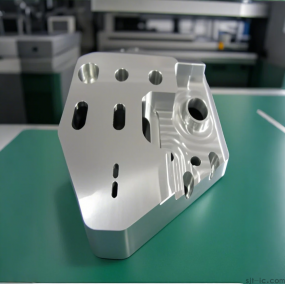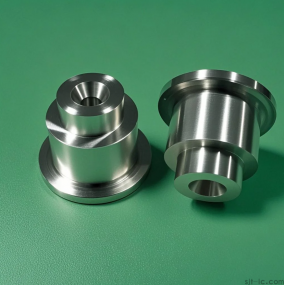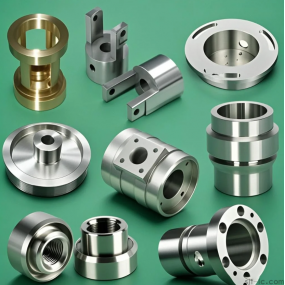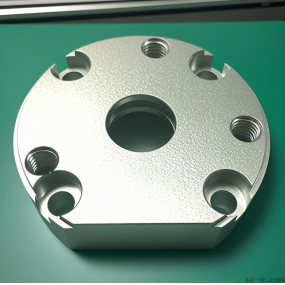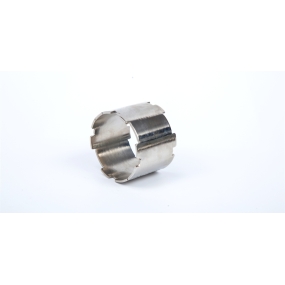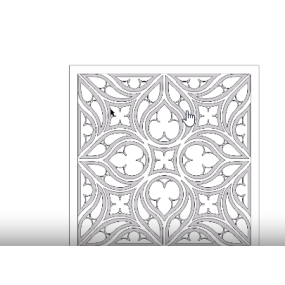Improper operation during CNC five axis machining may affect multiple aspects, including machining accuracy, machine performance, machining efficiency, safety, and machining costs. The following is a detailed analysis of these impacts: 1 Machining accuracy and direct error: Improper operation may cause the tool path to deviate from the preset trajectory, resulting in machining errors. For example, incorrect program input, improper tool compensation settings, or incorrect machine coordinate origin settings can directly affect the dimensional and shape accuracy of the workpiece· Nonlinear error: In five axis linkage machining, there is a nonlinear error due to the simultaneous motion of the rotating axis and the linear axis. Improper operation may exacerbate this error, leading to a decrease in the surface quality of the workpiece. 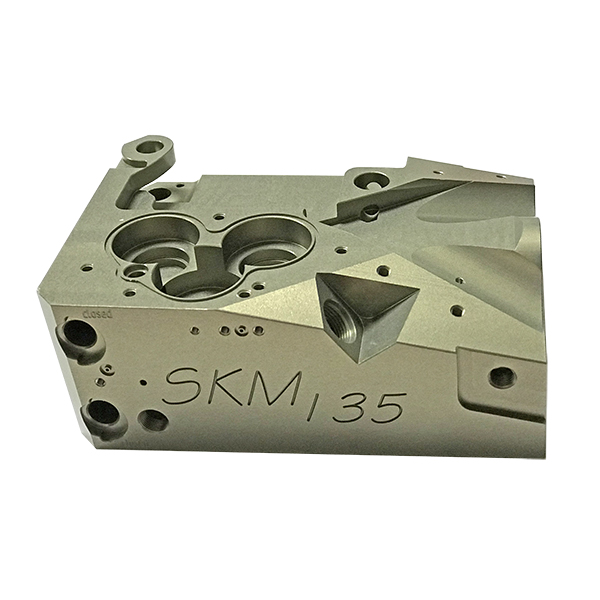 2. Machine tool performance and mechanical component wear: Frequent incorrect operations may accelerate the wear of machine tool mechanical components, such as bearings, guides, and screws, which in turn affect the accuracy and lifespan of the machine tool· Electrical system failure: Improper operation may also cause electrical system failures, such as damage to drives, sensors, or controllers, resulting in decreased machine performance or shutdown. 3. Processing efficiency and increased downtime: Improper operation may lead to frequent machine tool shutdowns for troubleshooting and repair, thereby extending the processing cycle and reducing processing efficiency· Material waste: Insufficient processing accuracy may lead to an increase in scrap rate and material costs. 4. Safety and personal injury risk: Improper operation may expose operators to danger, such as tool breakage, machine tool loss of control, etc., increasing the risk of personal injury· Equipment damage risk: Incorrect operating parameters or programs may cause machine overload, collisions, and other accidents, resulting in equipment damage. 5. Increased processing and maintenance costs: Improper operation leading to increased machine tool failures and wear will result in higher maintenance costs for the machine tool· Indirect cost increase: The increase in scrap rate and downtime caused by insufficient processing accuracy will indirectly increase processing costs. Specific examples of improper operation and their impact: 1. Examples of improper operation: Failure to follow the operation manual and procedures· Program input error or improper tool compensation setting· The machine coordinate origin is set incorrectly or not calibrated regularly· Failure to adjust cutting parameters in a timely manner during the machining process to adapt to material changes Specific impact: The size and shape accuracy of the processed parts do not meet the standards· The surface quality of the processed parts decreases, such as increased roughness and obvious ripples· The performance of the machine tool deteriorates, such as increased vibration and noise· Reduced processing efficiency and extended processing cycle· Increase material and labor costs.
2. Machine tool performance and mechanical component wear: Frequent incorrect operations may accelerate the wear of machine tool mechanical components, such as bearings, guides, and screws, which in turn affect the accuracy and lifespan of the machine tool· Electrical system failure: Improper operation may also cause electrical system failures, such as damage to drives, sensors, or controllers, resulting in decreased machine performance or shutdown. 3. Processing efficiency and increased downtime: Improper operation may lead to frequent machine tool shutdowns for troubleshooting and repair, thereby extending the processing cycle and reducing processing efficiency· Material waste: Insufficient processing accuracy may lead to an increase in scrap rate and material costs. 4. Safety and personal injury risk: Improper operation may expose operators to danger, such as tool breakage, machine tool loss of control, etc., increasing the risk of personal injury· Equipment damage risk: Incorrect operating parameters or programs may cause machine overload, collisions, and other accidents, resulting in equipment damage. 5. Increased processing and maintenance costs: Improper operation leading to increased machine tool failures and wear will result in higher maintenance costs for the machine tool· Indirect cost increase: The increase in scrap rate and downtime caused by insufficient processing accuracy will indirectly increase processing costs. Specific examples of improper operation and their impact: 1. Examples of improper operation: Failure to follow the operation manual and procedures· Program input error or improper tool compensation setting· The machine coordinate origin is set incorrectly or not calibrated regularly· Failure to adjust cutting parameters in a timely manner during the machining process to adapt to material changes Specific impact: The size and shape accuracy of the processed parts do not meet the standards· The surface quality of the processed parts decreases, such as increased roughness and obvious ripples· The performance of the machine tool deteriorates, such as increased vibration and noise· Reduced processing efficiency and extended processing cycle· Increase material and labor costs.
Hello! Welcome to EMAR's website!
 English
English » »
» »
 Spanish
Spanish Arabic
Arabic French
French Portuguese
Portuguese Belarusian
Belarusian Japanese
Japanese Russian
Russian Malay
Malay Icelandic
Icelandic Bulgarian
Bulgarian Azerbaijani
Azerbaijani Estonian
Estonian Irish
Irish Polish
Polish Persian
Persian Boolean
Boolean Danish
Danish German
German Filipino
Filipino Finnish
Finnish Korean
Korean Dutch
Dutch Galician
Galician Catalan
Catalan Czech
Czech Croatian
Croatian Latin
Latin Latvian
Latvian Romanian
Romanian Maltese
Maltese Macedonian
Macedonian Norwegian
Norwegian Swedish
Swedish Serbian
Serbian Slovak
Slovak Slovenian
Slovenian Swahili
Swahili Thai
Thai Turkish
Turkish Welsh
Welsh Urdu
Urdu Ukrainian
Ukrainian Greek
Greek Hungarian
Hungarian Italian
Italian Yiddish
Yiddish Indonesian
Indonesian Vietnamese
Vietnamese Haitian Creole
Haitian Creole Spanish Basque
Spanish Basque


